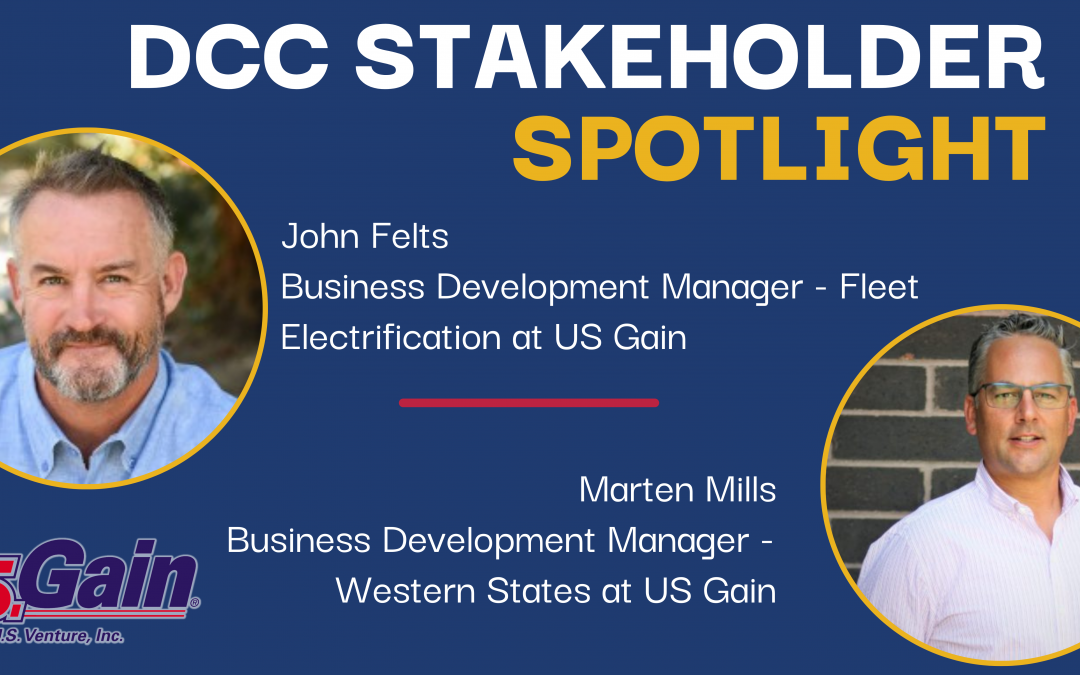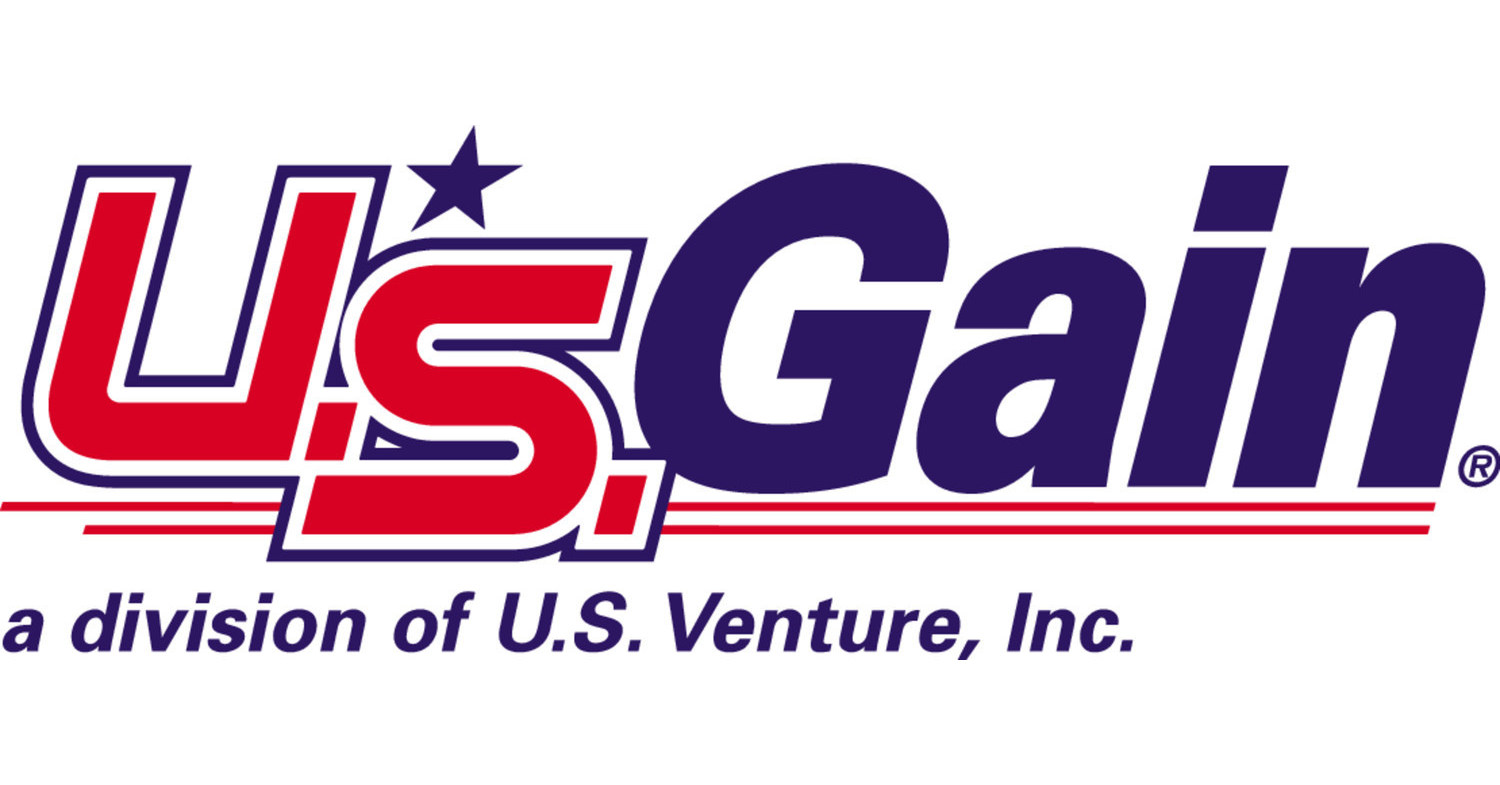Drive Clean Colorado is pleased to welcome one of our newest sponsors, US Gain. US Gain is a leader in developing and distributing alternative fuel and renewable thermal energy for the transportation and energy markets. We had the pleasure of interviewing Marten Mills and John Felts. Marten is a Business Development Manager for the western states, and John is a Business Development Manager for fleet electrification. Keep reading to learn more about Marten and John and how US Gain can help advance clean transportation in Colorado.
*Note: The following answers are summarized from an interview with Marten Mills and John Felts from U.S. Gain
Could you give us a little introduction about yourselves?
Marten Mills: I am a Business Development Manager for U.S. Gain covering the Western States. U.S. Gain is a company owned by U.S. Venture, a family-owned company from Appleton, Wisconsin. U.S. Gain focuses on sustainable energy solutions. We are looking at all the vehicle fuel platforms to reduce emissions across all forms of transportation. This includes the transit industry, the trash refuse industry, the large trucking industry, etc. U.S. Gain is a significant producer of renewable natural gas (RNG) and is a commercial natural gas (CNG) station owner/operator. We have about 50 to 55 CNG fueling stations spread out throughout the country. In Colorado, we have a CNG fueling station in Aurora that is heavily used right now.
John Felts: I am a Business Development Manager for fleet electrification for the United States. Right now, I focus on the western states. I have a background in electric vehicles, having most recently worked for Motive Power Systems, selling mid-duty electrics.
What products and services does U.S. Gain offer that can help advance clean transportation in Colorado?
Marten Mills: U.S. Gain is looking at all sustainable fuel options and focusing on what is ready and available. For many fleets, that means increasing accessibility to CNG gas to help reduce emissions immediately. As we’ve looked at the market and where the Alt-Fuels space is going, we’ve also taken a much deeper dive into the hydrogen space. We are now looking more directly at producing hydrogen using the steam methane reformation (SMR) method sourced from renewable natural gas. We want to focus on bringing these solutions to fleets that are willing and able to use that hydrogen. We offer hydrogen fueling as delivered in liquid or gas form and can create onsite production facilities. That’s our growth model right now. U.S. Gain also brought on John Felts from the fleet electrification standpoint. We’re now focusing on slowly growing into the hydrogen or electric space, but are willing to help fleets jump in at a hundred percent. We’re happy to provide that avenue for jumping in a hundred percent for both hydrogen and electric.
John Felts: From an electrification standpoint, U.S. Gain has a whole solution approach. We can help install the infrastructure, help with energy sourcing, manage the construction, and help manage charging. Charge management helps fleets manage their costs and the charger’s use. U.S. Gain accomplishes this with partnerships with companies like Amply – a smart charge management software company. We also have partnerships with inductive charging technology companies. There is not a one-solution-fits-all scenario.
We can also develop poly fuel stations or stations that have electric chargers as well as natural gas and hydrogen dispensers. These stations can be a bridge for many folks that may be existing CNG users, allowing them to foray into hydrogen or electric-powered vehicles without fully committing off the bat.
Colorado has been considering a Low Carbon Fuel Standard (LCFS). How would you anticipate this changing the alternative fuel landscape here?
John Felts: In California and Oregon, we consistently help our clients with low carbon fuel standard credits. We help customers sign up for LCFS credits and use their credits to offset their fuel or vehicle costs. In some cases, the revenue generated from LCFS credits allows customers to buy new low-carbon vehicles. LCFS credits are worth varying amounts depending on the state. For example, California’s LCFS is more generous than Oregon’s. I could see Colorado implementing its own low-carbon fuel standard.
Marten Mills: LCFS credits become a revenue stream and help with the adoption of low-carbon fuels. It’s important to note that the federal Renewable Fuel Standard (RFS) Program exists, which helps with adopting low-carbon fuels nationally.
Are there any current projects you’re working on that you would like to share?
Marten Mills: Yes, we recently opened a brand new CNG station for heavy-duty trucks near the Port of Long Beach and Port of Los Angeles. This station will serve Class 8 fleets as well as any local refuse truck or school bus fleets. We are also looking at bringing gaseous hydrogen to the market in California, Oregon, and Washington by developing hydrogen hubs. We would be happy to do the same in Colorado.
See more DCC Stakeholder Spotlights or learn more about joining DCC today!



